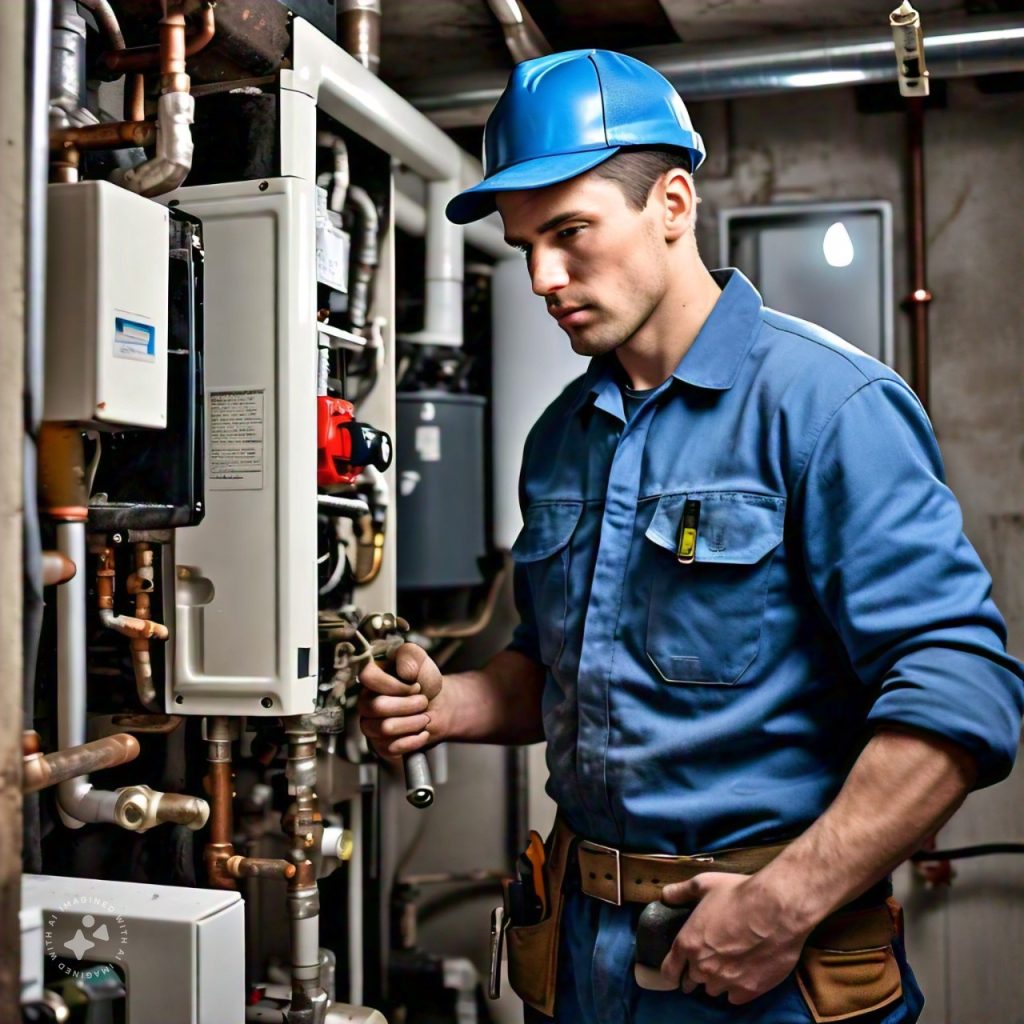When it comes to maintaining the comfort and functionality of a home, the heating system plays a crucial role. However, when this system malfunctions, homeowners often face the dilemma of whom to call for repairs. While many might immediately think of HVAC (Heating, Ventilation, and Air Conditioning) technicians, it’s important to recognize that plumbers can also be adept at fixing heating systems. This article explores the capabilities of plumbers in addressing heating system issues, the scope of their expertise, and when it’s appropriate to call them for such tasks.
Table of Contents
ToggleUnderstanding the Role of a Plumber
Plumbers are skilled professionals who specialize in installing, repairing, and maintaining various plumbing systems. Their expertise includes water supply lines, drainage systems, and, importantly, components of heating systems, especially those that involve water. Given their broad skill set, plumbers are often trained to handle a variety of heating systems, including those that are integral to a home’s plumbing infrastructure.
Types of Heating Systems Plumbers Can Fix
- Hydronic Heating Systems:
- These systems use water to transfer heat throughout the home. Water is heated in a boiler and then circulated through pipes to radiators or underfloor heating systems.
- Plumber’s Role: Plumbers can diagnose and fix issues such as leaks, malfunctioning boilers, and problems with water circulation. Their expertise in working with pipes and water systems makes them well-suited for these tasks.
- Boilers:
- Boilers are critical components of many heating systems, providing hot water or steam for heating purposes.
- Plumber’s Role: Plumbers are equipped to handle boiler installation, maintenance, and repair. They can address issues like pressure problems, leaks, and heating inefficiencies.
- Radiant Floor Heating:
- This system involves a network of pipes beneath the floor that carries hot water to heat the room from the ground up.
- Plumber’s Role: Given their experience with piping and water systems, plumbers can efficiently install, maintain, and repair radiant floor heating systems. They can troubleshoot issues such as uneven heating or leaks in the pipes.
- Hot Water Heaters:
- These appliances provide hot water for both domestic use and heating purposes.
- Plumber’s Role: Plumbers frequently install and service hot water heaters, addressing problems like insufficient hot water, leaks, or unusual noises.
Skills and Tools Plumbers Bring to Heating System Repairs
- Expertise in Water Systems:
- Plumbers are trained to work with all aspects of water systems, including pipes, valves, and pressure controls. This expertise is particularly valuable for hydronic heating systems and boilers.
- Diagnostic Skills:
- Plumbers can accurately diagnose issues within heating systems, using specialized tools to identify problems like leaks, blockages, or faulty components.
- Installation and Maintenance:
- Whether installing a new boiler or maintaining an existing one, plumbers have the skills to ensure systems operate efficiently and safely. They can also offer preventative maintenance to avoid future issues.
- Emergency Repairs:
- Plumbers often provide 24/7 emergency services, which can be crucial when a heating system fails during cold weather.
When to Call a Plumber for Heating System Issues
- Leaks in the System:
- If you notice water pooling around your boiler or radiators, or damp spots on walls or ceilings, it’s likely you have a leak. Plumbers can quickly locate and fix leaks to prevent further damage.
- No Heat or Inadequate Heat:
- When the heating system fails to provide adequate warmth, a plumber can check for issues like airlocks in pipes, malfunctioning thermostats, or problems with the boiler.
- Strange Noises:
- Banging, whistling, or gurgling noises from the heating system can indicate problems such as trapped air, sediment buildup, or a failing component. Plumbers can identify and resolve these issues.
- Routine Maintenance:
- Regular maintenance of heating systems can prevent breakdowns and extend their lifespan. Plumbers can perform tasks like bleeding radiators, flushing the system, and checking the boiler’s efficiency.
- Installation of New Systems:
- If you’re upgrading your heating system or installing a new one, plumbers can ensure proper installation and integration with your existing plumbing.
Limitations and When to Call an HVAC Technician
While plumbers are highly skilled in many aspects of heating system repair, there are situations where an HVAC technician’s specialized knowledge is necessary:
- Complex HVAC Systems:
- For central heating systems that integrate with air conditioning and ventilation, HVAC technicians have the specialized training to address issues across all components.
- Electrical Components:
- Heating systems often have electrical components, such as thermostats and circuit boards, which may require the expertise of an HVAC technician or electrician.
- Air Quality Issues:
- HVAC technicians are trained to handle problems related to air quality and ventilation, ensuring the entire system works cohesively.
Conclusion
In summary, plumbers are well-equipped to handle many issues related to heating systems, particularly those involving water. Their expertise in piping, boilers, and water heaters makes them invaluable for a wide range of heating system repairs and maintenance tasks. However, for more complex HVAC systems or issues involving electrical components, it’s advisable to consult an HVAC technician. By understanding the strengths and limitations of both plumbers and HVAC technicians, homeowners can ensure their heating systems are efficiently and effectively maintained, providing comfort and safety throughout the year.

